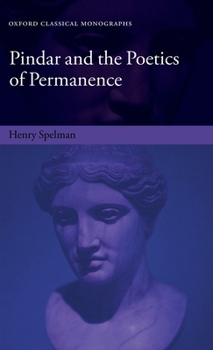Pindar and the Poetics of Permanence
Recent scholarship on early Greek lyric has been primarily concerned with the immediate contexts of its first performance. This volume instead turns its attention to the rhetoric and realities of poetic permanence. Taking Pindar and archaic Greek literary culture as its focus, it offers a new reading of Pindar's victory odes which explores not only how they were received by those who first experienced them, but also what they can mean to later audiences...
Format:Hardcover
Language:English
ISBN:0198821271
ISBN13:9780198821274
Release Date:July 2018
Publisher:Oxford University Press, USA
Length:384 Pages
Weight:1.32 lbs.
Dimensions:1.2" x 5.4" x 8.6"
Customer Reviews
0 rating





